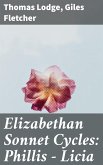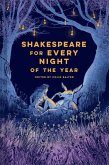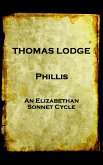Elizabethan Sonnet Cycles: Phillis - Licia offers a profound exploration of the sonnet form through the inspired lenses of Thomas Lodge and Giles Fletcher, capturing the eloquent spirit of the Elizabethan era. The collection delves into themes of love, beauty, and unrequited affection with both traditional adherence and innovative flair. It provides a vivid tapestry woven with emotional intensity and lyrical sophistication that characterizes the sonnet cycles of this vibrant period in English literature. Standout pieces challenge conventional boundaries while maintaining exquisite poise, inviting readers to experience the depth of human emotion captured in these poetic gems. The contributing authors, Thomas Lodge and Giles Fletcher, bring a wealth of literary prowess and historical grounding to the collection. As practitioners and pioneers within the Elizabethan literary movement, they adeptly navigate the sonnet's rigors while embedding personal and cultural reflections of their time. These cycles echo the Renaissance's intellectual and artistic awakening, resonating with both classical influences and emerging individualistic expressions. Each poet contributes uniquely to the collective's tapestry, enriching the anthology with diverse voices and styles that complement and contrast with one another. This anthology presents readers with an exceptional opportunity to immerse themselves in the nuanced dialogues between two of Elizabethan literature's distinguished figures. With its educational and intellectual breadth, Elizabethan Sonnet Cycles: Phillis - Licia invites both scholars and enthusiasts to engage with the philosophical and sentimental inquiries of its era, offering a compelling glimpse into the timeless allure of the sonnet form. In reading, one gains not just an appreciation of past literary art but a conversation between eras and poets that continues to inspire contemplation and admiration even today.
Dieser Download kann aus rechtlichen Gründen nur mit Rechnungsadresse in A, B, BG, CY, CZ, D, DK, EW, E, FIN, F, GR, H, IRL, I, LT, L, LR, M, NL, PL, P, R, S, SLO, SK ausgeliefert werden.









